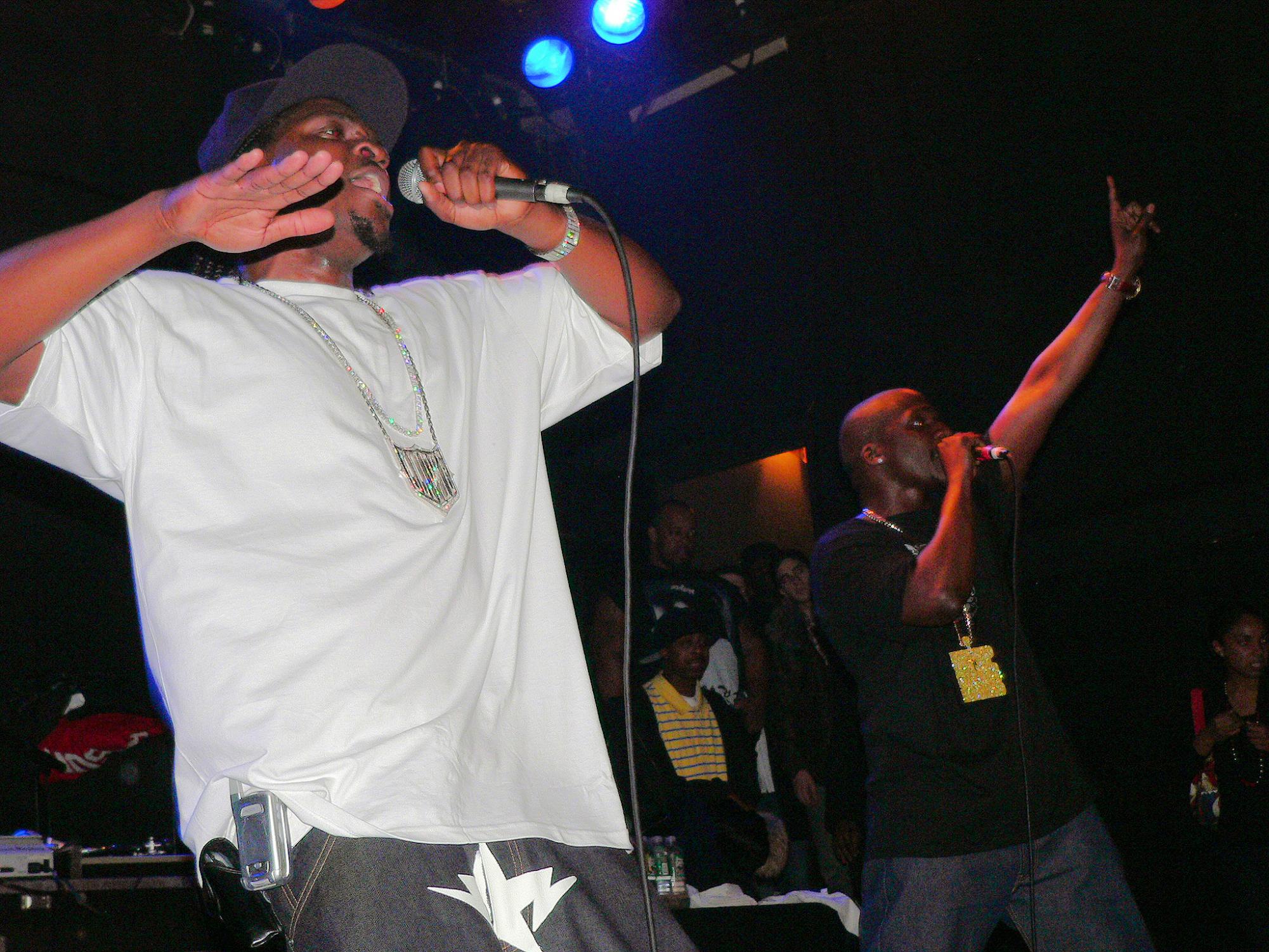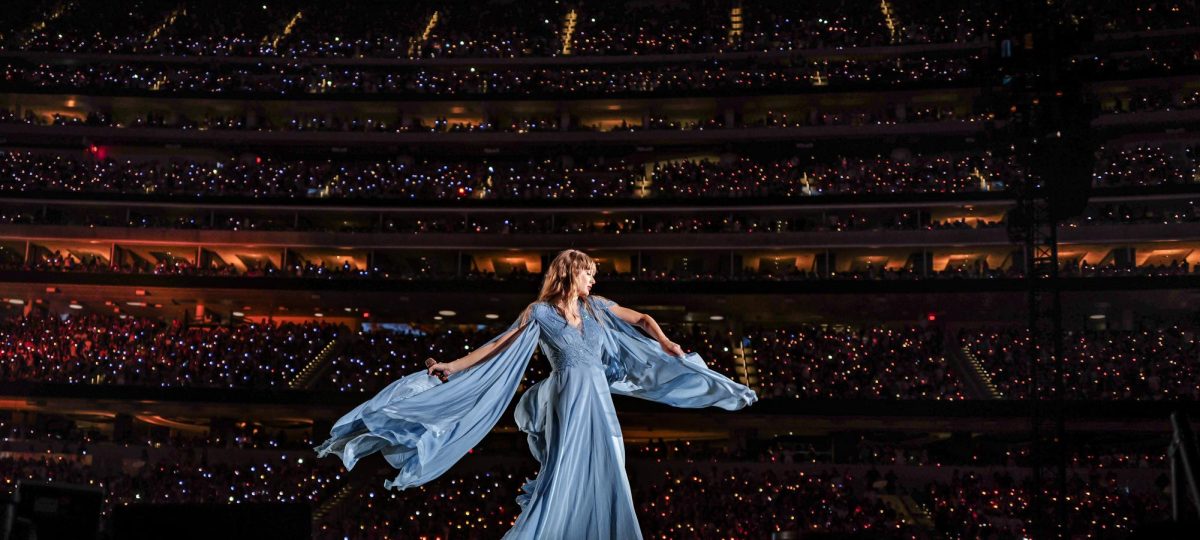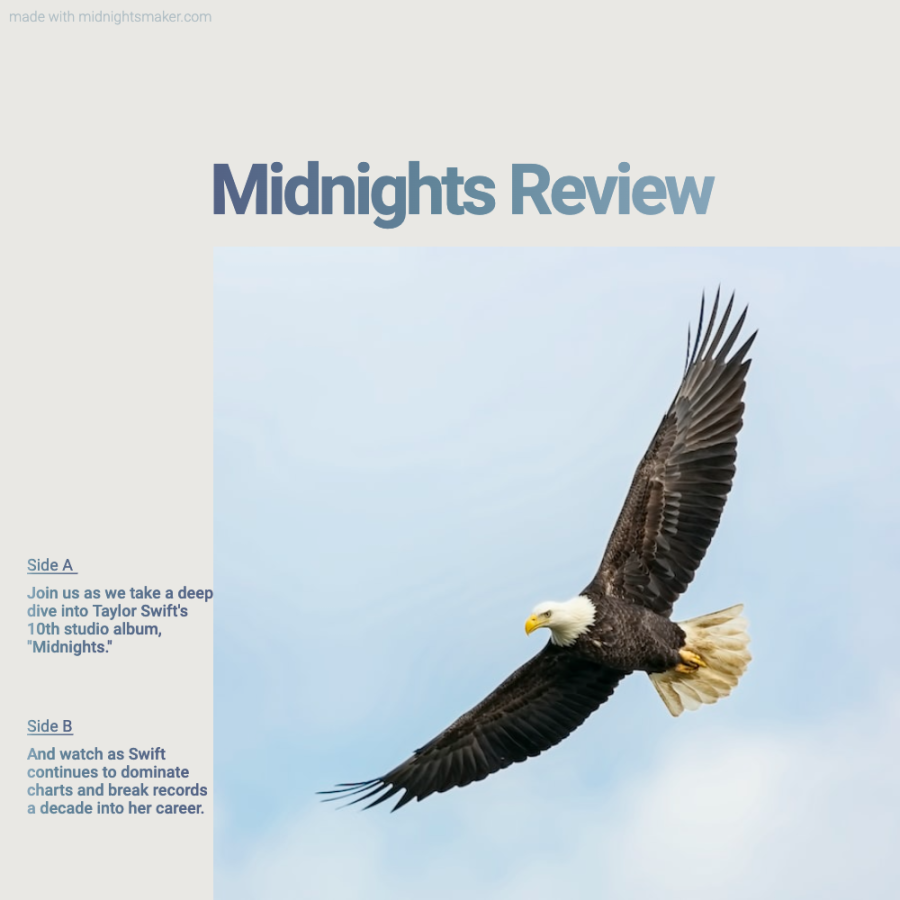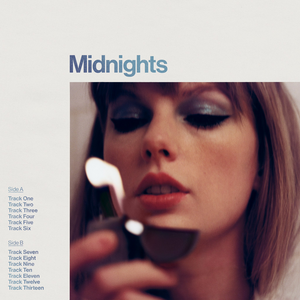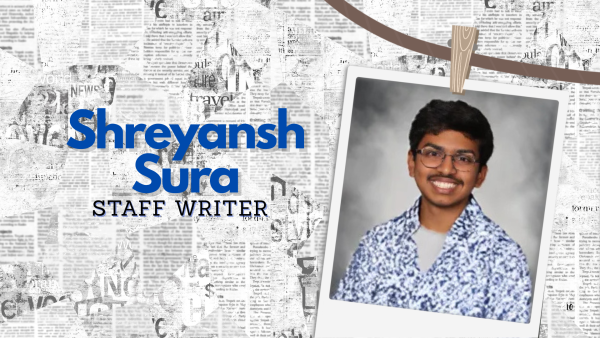“Birds don’t sing if the words don’t sting
Your last few words in my ear still ring
You told me that you loved me, it was all in your tone
I love my two sons was the code to your phone, now you’re gone.”
These were the last four bars Malice rapped at the “Grace For The World” concert, held on Sept. 13, 2025, in Vatican City. It was from the song “The Birds Don’t Sing,” a track from the rap album “Let God Sort Em Out,” deeming Clipse as the first hip hop group to ever perform in that country. Despite being a massive honor, it’s an equally ironic action.
How on earth would an invite from the Pope possibly be bamboozling? Well if you know Clipse, then you know why.
From Bricks To Bars
1988. The slums of Virginia Beach. Gene Thornton was a sophomore during school hours, and a supplier afterwards. He would spend days working on less-than-legal activities. It was no civil duty, rather a personal one. His family’s financial situation was rough, with both his parents working long shifts just to keep him and his brother, Terrence Thornton, afloat. As the two of them struggled so much just to pay the bills, he knew he had to give a helping hand. Although he was breaking the law, he shrugged it off, as nothing matters more than your loved ones.
While he continued manufacturing, Gene was also polishing his rapping skills, avidly listening to popular artists at the time to build his flow. It was during this process when he was introduced to Chad Hugo, a fellow Virginian who happened to live in the same town as him, and also had a penchant for music. Through this connection he also met Pharell Williams, who had formed a production duo with Hugo known as “The Neptunes.” As the trio got to know each other more, they spent even more time making music; the Neptunes on the keyboard and Gene on the mic became the official conception of “Clipse” as we know it today.
But what about Pusha T?
As he continued through high school, Gene eventually introduced his brother to the underworld he had given his life to, and soon Terrence stood side-by-side with Gene during his activities. He also stood next to him when the former was recording with the Neptunes, learning and polishing his rhymes along the way.
But as life goes on, you must reap what you sow.
One day, their father opened the cupboard to quickly grab something, only to find Gene’s illegal materials. This was the turning point for the brothers, as it showed them the consequences of their actions. Their parents were enraged at what they were doing, going as far as to kick Gene out of the house to show him the cost of his actions, that his dealings only put the family in a worse state than before.
After graduating in 1991, Gene enlisted in the Army and worked as a mechanic, hoping to at least help his family the right way this time. Back home, Terrence amped up his business and rapping, soon reaching a level respected by many. This, amidst his brother’s absence, drove him to put more effort into a music career, meeting up frequently with the Neptunes in hopes of getting his first shot at the rap industry.
Eight years later, it happened.
Almost.
With Gene back, the family situation alright, and enough music to become rappers, Terrence and his brother were ready to debut as Terrar and Malice, known more importantly as the rap group Clipse. They compiled 20 songs to craft their debut album “Exclusive Audio Footage,” and submitted it to Elektra Records. Afterwards, the album skyrocketed, they became overnight celebrities, and the record aged to be one of the best debuts of all time.
In another universe, all of this happened.
In reality, the album’s lead single “The Funeral” harshly underperformed, leading Elektra to scrap the album and drop Clipse from the label. In simpler terms, years of artistry was flushed down the toilet. This was an even bigger wake-up call than Malice getting thrown out, as they faced possibly losing the only chance they could of making it out the ‘hood.
So what do they do? They get even better.
The duo spend even more time in the studio and craft an even better roster of songs with Hugo and Williams, and these tunes were different; mainly because it was made with a passion so strong the brothers were ready to give anything for it. And in summer of 2002, it all paid off. Backed by the charting single “Grindin’,” Pusha T and Malice made their resounding hip-hop entry as Clipse with the album “Lord Willin’.” This album became popular not only because of the brothers’ inner-city storytelling, but because of how often and creatively they referred to their other business.
Finally achieving the celebrity status they always wanted, Clipse spent the next few years crafting great (if not better) albums, and soon solidified themselves as one of hip-hop’s greatest duo acts alongside OutKast, Eric B. & Rakim, and others.
But a hot streak doesn’t last forever.
Constantly plagued with label issues, Clipse spent a large portion of their time fighting for their albums to be released, soon leading to numerous changes in who they signed to. But most of the troubles were for Malice: family issues, frustration from the labels, and a horrible health-scare made him rethink his views on mortality and wrongdoing, giving him a renewed sense of ethics. He viewed his entire career to be one full of sins, and didn’t want to continue putting rap over subjects he was a master at, yet this wasn’t the boiling point.
It all culminated on a night when Clipse was going to travel on a flight. Malice sat in the plane, waiting patiently for his brother to join him. Seconds turned to minutes, and the minutes became longer every second. He slowly started panicking, as the clock ticked past the departure time, yet Pusha wasn’t nowhere to be seen. Did he get arrested? Did he get robbed? Did he get hurt? These questions banged through his head, and when Push finally came, Malice had enough. He angrily denounced all that they did, despised the careers they had, and for the final blow, he stated that Clipse was done.
After that, Malice stepped away to become a preacher. But Pusha T couldn’t leave the life he left his previous one to build. So he continued rapping, this time to become one of the greats.
I’m Yo Pusha
Since he had a close relationship with him, Pusha bagged a couple features on Kanye West’s album “My Beautiful Dark Twisted Fantasy” and weekly music drops, “G.O.O.D. Fridays.” Specifically, the former’s minute long verse on “Runaway” was a standout, showcasing his more introspective and braggadocious lyricism, a trait universally lauded by many. He continued collaborating with West, and soon the two were able to create numerous hours worth of music, tunes that hit rap fans the right way.
As he continued with his improved success, Pusha put out more mixtapes and singles. And in October 2013, he solidified his work: the album “My Name Is My Name” was released. With bars from Pusha himself, Future, 2 Chainz, a young Kendrick and more, with production from none other than Kanye West, Pharell, No I.D. and other beatmakers, the project quickly soared to be one of the best rap albums of the year. The LP gave us classics like “King Push,” “Numbers On The Board,” and “Nosetalgia,” and the people were eager to see what T would come up with next, while others were certain he’d fall off.
Two years later, he released “King Push – Darkest Before Dawn: The Prelude,” a mixtape which showed much more variety than the one prior. Up-and-coming producers like Metro Boomin and Boi-1da, along with veterans like Q-Tip and Timbaland, sent in their beats to be graced by Push, who did with the help of A$AP Rocky, The-Dream, Beanie Siegel and others. After this dropped, the industry kept wondering how much longer Pusha’s reign would continue, and if he would ever release a single bad project. It is during this period that Pusha released what’s considered his “definitive” album, one that’s also my personal favorite: “Daytona.”
Cut to a short 7 tracks, the album is filled with numerous raps, all either reflecting on transporting the material or the highs-and-lows of the celebrity lifestyle. What makes it even better? All tracks are produced by Kanye West, who was in the midst of his highly prolific era of producing and rapping on his albums whilst doing the same for other artists he admired, aptly dubbed by fans as the “Wyoming Sessions” (“Daytona” was the first of five albums made during this time). Universally acclaimed upon release, the project was what catapulted Pusha to become one of hip-hop’s most respected artists, and gave him his well-deserved time in the spotlight.
This wasn’t the end of an already amazing run; 4 years later, he released the follow-up album “It’s Almost Dry.” This time, the album was produced at an even split, with six out of 12 tracks having beats by West, the remaining few by Pharell Williams. Once again, the album received praise from many of the critics who reviewed it, this time for how much more drive and focus Push had on his craft. But another thing which stood out on the album was the final track, which featured Malice.
During the decade when Pusha embarked on his solo career, Malice grappled with his personal conflicts and beliefs, reflecting on his life’s actions and what he wanted to do in the future. Having found a renewed interest in Christianity, he decided that he would start a new journey, and an ironic one considering what he had done all his life: becoming a minister. After being baptized, Malice began preaching at the churches in his community, gaining a following for his public speaking and willingness to discuss his actions and how being Christian helped him overcome difficulties and feel more satisfied.
He was happy, but not fulfilled. Leaving rap felt easy at first but as years passed, he missed the artform he spent most of his time mastering, and most of all rapping along with his brother. As more time passed, the idea of joining back up with him became more irresistible, and soon he finally asked Push if he could feature with him on Kanye West’s gospel rap album “Jesus Is King.”
And as expected, Pusha welcomed him back.
Seven Figures
With the return of Clipse, it was expected that they had to craft another LP; the last one they did was 16 years ago, and the subgenre which they basically pioneered was hanging on the backburner of the hip-hop industry, despite the efforts of Freddie Gibbs, the Griselda collective, and many more rappers releasing classics in that space. In 2023, the recording sessions finally began, with the rappers moving between studios in Virginia and Paris (as Pharell Williams was producing the album while also serving as the Men’s Creative Director for Louis Vuitton) to craft their comeback. And after a year of careful creation, “Let God Sort Em Out” was finally complete. All eyes were on Clipse to finally release the project that would officially state their return.
Thing is, the release didn’t happen.
Well not yet, at least.
When Clipse submitted their album to Def Jam Recordings (their label), the latter rejected it. When inquiring why, it came out that Def Jam found a feature on the album to be in bad taste, and felt it could stir controversy if it ever came out. But when Pusha dug deeper, he found the real reason: the song “Chains & Whips” was basically a Drake diss, who was in the midst of a lawsuit against Universal Music Group (Def Jam’s parent company) for artificially inflating the streams of “Not Like Us,” another diss at him released that year.
Want to know something funny? Remember that feature I was mentioning? It was on “Chains & Whips,” and it was from none other than Kendrick Lamar himself.
The mere idea of two of Drake’s biggest haters on the same song spewing venom was frightening to even think about, so it’s now obvious why the studio declined to release the album. This angered Push, who went back-and-forth with Def Jam and after another year of fighting, the studio finally succumbed to Clipse’s campaigning, but not without a price. In order to be released from the label, Pusha had to pay a seven figure sum to the latter, something which was surely not cheap yet necessary. Once they emancipated themselves, Clipse began shopping their album around to other labels, hoping this time at least they could get more freedom than before.
When patience was almost worn thin, Jay-Z came to the rescue. Having known Pusha for almost a decade prior, he invited Clipse to sign to his Roc Nation label. And finally after two years of complications, the comeback was finally released on July 11, 2025 to universal acclaim, with many deeming “Let God Sort Em Out” as the album of the year.
Numbers On The Boards
The album was perfect in all senses: the rollout was amazing, as the duo held as many interviews and performances as possible to promote it, a perk with signing with Roc Nation. The singles and music videos were also great, really instilling the mature and dramatic atmosphere the project was going for. With how stellar the publicity was, the project itself was even more than stellar.
From the first bars to the final seconds, quality was visible everywhere. Pusha and Malice’s rhymes were top-tier, rhyming entendres and crisp allusions over a wide range of topics; from their parents’ passing to unfiltered rapping about illegal activities, everything was planned perfectly. The production was phenomenal too, as Pharell tapped into his true potential, supplying listeners with icy synths, stark Arabic samples, blaring horns–basically music heaven for a hip hop fan. Even the features were crazy, with new schoolers like Stove God Cooks and Voices of Fire coupled with veterans like Nas and Kendrick; in total, the album was a masterpiece.
“Let God Sort Em Out” is an LP that is both timely and timeless. The rhymes deal with the past and present issues which tug on Clipse’s mentality daily, but conveyed in a way that will be relevant years later. It has emotion, it has pacing, and most of all, it has dedication. The dedication by two rappers who used it to live better lives. The dedication by a musician wishing to stamp his effect on hip-hop production for the masses. The dedication by a group of geniuses who got together and made a piece of art many will cherish for years to come.
And to rephrase in the words of Clipse, “So be it, so be it.”
Sources:
Popcast. (2025, June 23). Clipse’s Pusha T & Malice Would Rather Not Talk Kanye, Drake + Travis Scott — But They Will! YouTube. https://www.youtube.com/watch?v=6YpZ4OtURZQ
Complex. (2025, July 11). Clipse & Pharrell Tell the Story Behind “Let God Sort Em Out” | Complex Cover. YouTube. https://www.youtube.com/watch?v=CPV6T5EFRe0
Rajagopal, M. (2025, July 10). The Clipse Reunion Is Hip-Hop’s Hard Reset. Interview Magazine. https://www.interviewmagazine.com/music/the-clipse-reunion-is-hip-hops-hard-reset
Dimas Sanfiorenzo. (2025, July 11). My Brother’s Keeper: Clipse Cover Story. Complex. https://www.complex.com/music/a/dimassanfiorenzo/my-brothers-keeper-clipse-cover-story
Toure. (2025, July 18). The Clipse Is The Best Hiphop Album Of 2025 So Far. Substack.com; Culture Fries by Touré. https://toure.substack.com/p/the-clipse-is-the-best-hiphop-album



